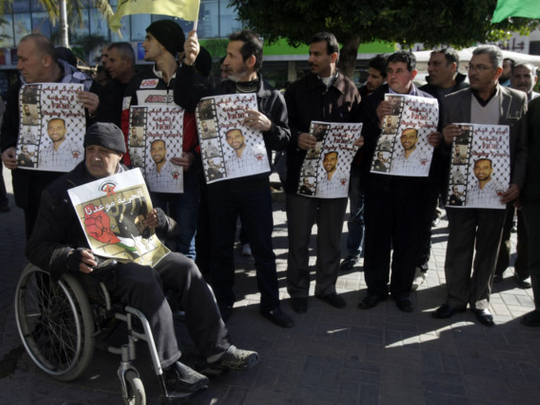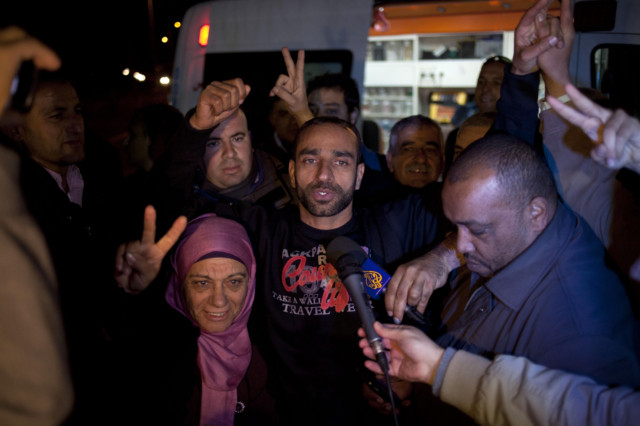
Dubai: Palestinian political prisoner and resistance icon Samer Issawi was released on Monday after spending over 17 months in the Israeli occupation detention centre Shatta Prison.
“Samer Issawi’s family was ordered by Israeli terror police earlier today not to celebrate and to take down the flags raised at their home,” according to “The Free Samer Issawi Campaign” page on Facebook.
Issawi ended his 277-day long hunger strike on April 23 after accepting a deal brokered by Israeli and Palestinian officials to serve eight months on charges of violating bail conditions for an earlier release.
In October 2011, Issawi, then serving ninth year of a 30-year jail sentence for involvement in resistance activities against Israel, was released as part of an Egypt-brokered prisoner swap between Hamas and Israeli authorities. That deal led to the release of captured Israeli soldier Gilad Shalit in exchange for more than 1,000 Palestinian prisoners in Israeli jails.
However, Issawi was rearrested on July 2012 under Israel’s so-called administrative detention law. The law, which has been in place since the end of the British mandate in Palestine in 1948, allows for the arrest of Palestinians if they are deemed a “threat” to Israel’s national security.
Palestinian hunger strikes have posed a new challenge to the Israeli government, which has come under international criticism for its practice of detaining prisoners without trial.













